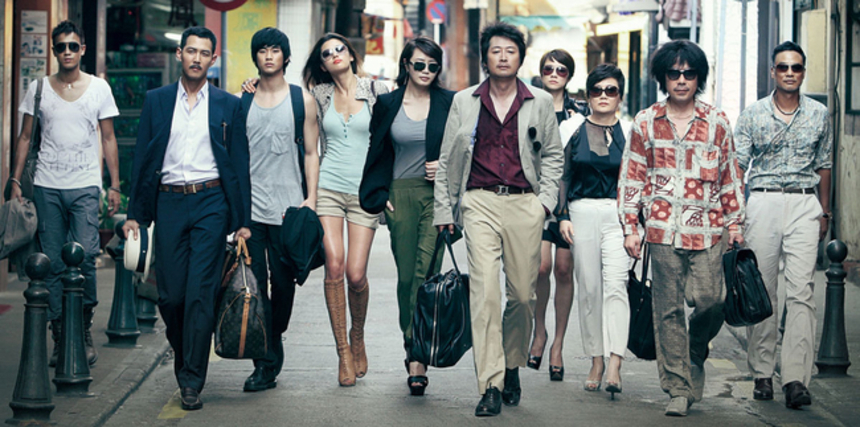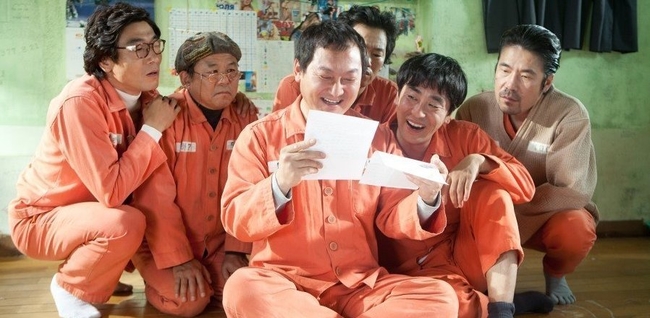Korea Beat: Domino Records, 10 Million Club and the Dangers of Success

There's a lot of talk of emerging markets these days and while South Korea is experiencing a rise similar to those developing industries, the country has already been a beacon of commercial success in the region for quite some time. 2012 ended with a rewritten record book for the Korean box office as significant new benchmarks were set for overall tickets sold (194.9 million) and admissions for Korean films (114.6 million). The Thieves also became the most successful Korean feature of all time, ousting long-standing champ The Host, though this fact is debatable depending on whose figures you choose to follow.
Now the first quarter of 2013 has passed and figures have come in showing an even greater rise in attendance and local market share. From a total of 55.6 million tickets sold, 38.5 million were for local releases. That's a staggering 50% increase over last year and represents 70% of all sales at the box office. It begs the question, what has changed?
The movies aren't any better (though they are still for the most part very good) and the marketing is no more aggressive. In fact, commercial Korean cinema has merely continued to do what it's good at, namely produce a solid and diversified slate of original films. The only major changes have been the general expansion of the market and the emergence of certain popular trends, such as assembling glitzy ensemble casts.
The movie star system is not what it used to be in Korea and a number of big names are no longer able to 'open' films. Class acts like Song Kang-ho and Jeon Do-yeon aren't driving spectators to multiplexes in the same way they used to. However, by packaging a number of familiar faces into a high-concept event picture, this fatigue with name brand actors has been circumnavigated. The Thieves (Kim Yun-seok, Jeon Ji-hyeon, Kim Hye-soo and Lee Jeong-jae) and this year's The Berlin File (Ha Jung-woo, Han Suk-kyu, Ryoo Seung-beom and, once again, Jeon Ji-hyeon) are prime examples of this strategy, as they drew 13 and seven million viewers, respectively.
One thought that quietly eats away at me, particularly as the industry's health affects my livelihood, is that Korean society is very susceptible to trends. Be it coffee shops, waffles, Ralph Lauren polo shirts or smartphone games like Anipang, there's always a few fads on the go. I worry that Korean cinema is one of these trends and that once viewers get bored with local films they will revert back to Hollywood fare. This has happened before and though Korean cinema will eventually become all the rage again, it's a precarious business model.
In Korea, it used to be that a film was considered a success if it crossed the one million viewer mark, but with rising standards and budgets, that just doesn't cut it anymore. These days, mid-sized films need to sell a couple of million tickets to turn a profit. However, the golden number in Korean cinema is 10 million admissions: or one in five people in a country of 50 million. This arbitrary Holy Grail is the unarguable benchmark for mega-blockbuster status. By comparison, for a film to match this success at the US box office (for standard non-3D or IMAX fare), it would need to amass receipts in excess of $500 million.
Eight films have crossed this milestone in Korea, starting 10 years ago with Silmido. The next three years each added a new blockbuster to the illustrious club (2004 - Taegugki; 2005 - The King and the Clown; 2006 - The Host), then it wasn't until 2009's Haeundae that the group grew once more. Following another dry spell, a six-month stretch (July 2012-January 2013), remarkably yielded three new films (The Thieves, Masquerade, Miracle in Cell No. 7), bringing the total count to eight.
Just like the one billion mark for international Hollywood blockbusters, the 10 million admissions club is not as hard to crack as it once was. I can't say for certain that any more films from 2013 will join the group, but that's also the beauty of Korean cinema. Save for a film like The Thieves, there's no way of knowing when a film will ease its way over the threshold. That said, Miracle in Cell No. 7, which didn't feature any major stars (save for the possible exception of Ryoo Seung-ryong), was an enormous surprise that not a single person could have predicted. Looking ahead to the major releases on the rest of the year's calendar, the only thing jumping out at me is Bong Joon-ho's much-hyped Snowpiercer. It seems destined for success, though given the poor performance of this year's other English-language debuts from big time local directors (Park Chan-wook's Stoker and Kim Jee-woon's The Last Stand), who knows.
I think the domestic industry will slow down during the second quarter, given a relatively weak slate in May and June and Hollywood's traditional dominance during the early summer season, but more fireworks may well be in store for later this year. Predicting box office is generally a fool's game but I daresay that Korea shouldn't run out of steam any time soon, though perhaps market saturation isn't very far off. I'm also glad that the industry is making a bigger effort to break into overseas markets though this, as of yet, is a gamble that has yet to pay off. July's big-budget 3D family film Mr. Go (co-produced with China) will be a big test for the industry as it will need to make a significant amount of money in China in order to break even, a risky tactic for a Korean language film.
Mostly, what I hope is that the Korean film industry remembers what afforded it this success in the first place. Korean commercial cinema is known for its original and technically splendid works, frequently at the hands of auteurs. In its current incarnation, there are worries that the same freedom is no longer being granted to promising directors. What the commercial industry needs now are new Bong Joon-hos, Park Chan-wooks and Kim Jee-woons. A quick look at the independent scene in the country proves that the talent is out there but the big production houses don't seem to be taking any big risks at the moment.
The lack of freedom and reliance on formula and streamlined production techniques is, to my eyes, resulting in a 'sameness' that is creeping into the industry's output. I'm also worried that budgets are starting to get out of control, thinning the profit margins on the back end. This happened before in the crash of 2007 when the industry overreached after reaching its peak. I love Korean cinema and while I recognize that it must change over time, I fear that something vital is being lost in its commercial progression. Perhaps more than anything, what the industry needs now is a little courage.









